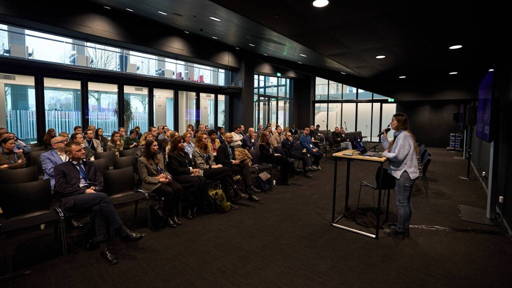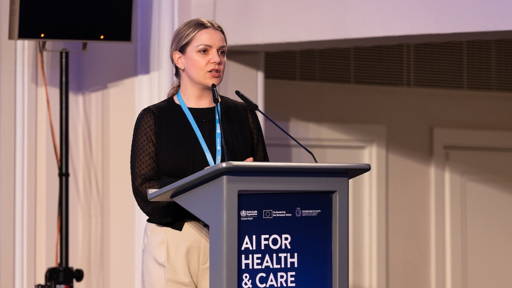Today in Oslo, the starting signal was given for CancerWatch, a large-scale European partnership that aims to fundamentally improve the quality and usability of cancer data. Led by the Norwegian Institute of Public Health, the programme brings together 92 organisations from 29 countries and focuses on the digital transformation of population-based cancer registries (PBCRs) in Europe. The ambition is to provide faster, more complete and more comparable data that will enable policymakers, researchers and healthcare professionals to take more effective action against cancer.
Up-to-date, high-quality cancer data form the backbone of effective prevention, early detection, treatment and aftercare. CancerWatch represents an important step in modernising European cancer registries. By using digital technologies data can be accessed, harmonised and shared more quickly, naturally within the framework of the GDPR.
The data provides direct input for, among others, the European Cancer Information System (ECIS) and the European Cancer Inequalities Registry (ECIR). Both play a key role in the European Cancer Plan and form the basis for evidence-based health policy. "Better data leads to better decisions. With CancerWatch, we are building a solid foundation for more effective and fair cancer care in Europe", says Gijs Geleijnse, scientific coordinator of the project.
Concrete objectives: from data quality to interoperability
The current situation in Europe shows that the coverage and timeliness of cancer data vary greatly. Some countries face years of delays or incomplete datasets. CancerWatch addresses this by:
- Implementing digital tools for faster and richer data collection by cancer registries;
- Harmonising international standards so that data is comparable and usable across national borders;
- Addressing technical and legal barriers to data sharing and privacy through innovative solutions;
- Optimising key cancer indicators such as survival and prevalence within ECIS for timely and policy-relevant insights;
- And preparing cancer registries for integration into the European Health Data Space (EHDS).
‘The ECIR depends on reliable data. With CancerWatch, we are strengthening this foundation and creating timely insights that can reduce inequality in cancer care in Europe,’ says Philippe Roux of the European Commission.
Collaboration as the key to scalable impact
CancerWatch is an example of pan-European collaboration in which public health authorities, cancer registries, research centres and ministries of health are joining forces. The project not only provides digital infrastructure and methodological standards, but also a roadmap for future cancer indicators and strategic expansion of cancer registries to underserved regions.
CancerWatch underlines how digital transformation and data-driven policy go hand in hand in achieving better outcomes for people with cancer. By investing in high-quality, up-to-date and interoperable data, Europe is building a strong foundation for inclusive, prevention-oriented and personalised cancer care.
About the project
Duration: 36 months (Sept 2025 – Aug 2028)
Coordinator: Norwegian Institute of Public Health (NIPH)
Partners: 92 organisations in 29 countries, including 58 cancer registries
Funding: EU4Health Programme (GA-101219450)
ECIS update
Back in april we wrote about an important update for the European Cancer Information System (ECIS), with latest cancer incidence and mortality data from over 125 registries across 32 countries, including the Netherlands Cancer Registry (NKR) managed by IKNL. The improved ECIS platform offers a more user-friendly interface to explore geographic and temporal cancer trends, supporting better-informed decisions in prevention, care, and policy.
The update highlights trends such as declining stomach cancer rates and notable sex differences in lung cancer incidence. With standardized, high-quality data, enabled through collaboration within the European Network of Cancer Registries (ENCR), ECIS strengthens its role as a key resource for researchers, healthcare professionals, and policymakers.
The need for robust cancer data is growing, driven by rising cancer diagnoses and demographic shifts, while registries face increasing pressure. In response, the European Commission planned to launch CancerWatch to further improve cancer data quality and accessibility. That launch happened today.







